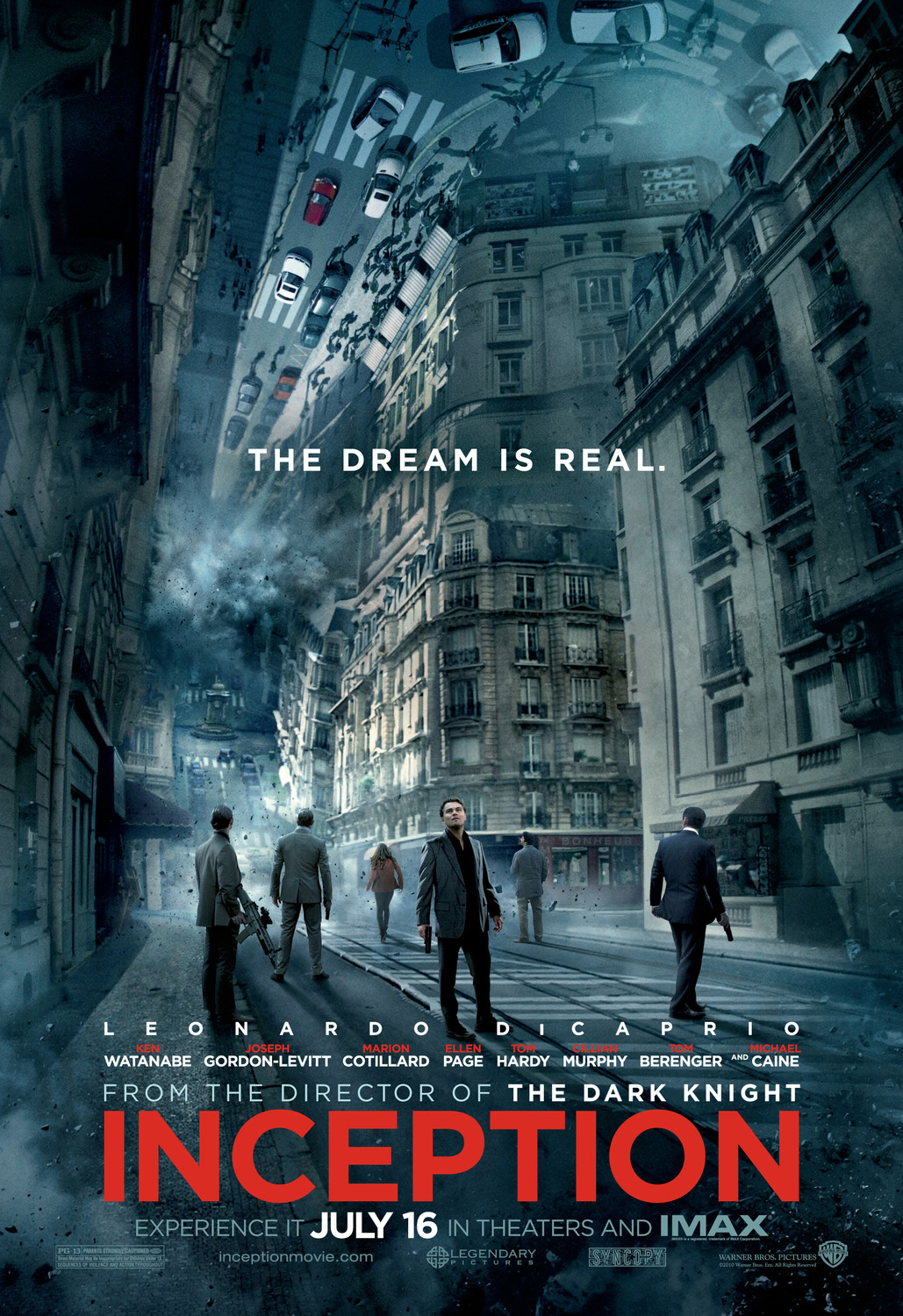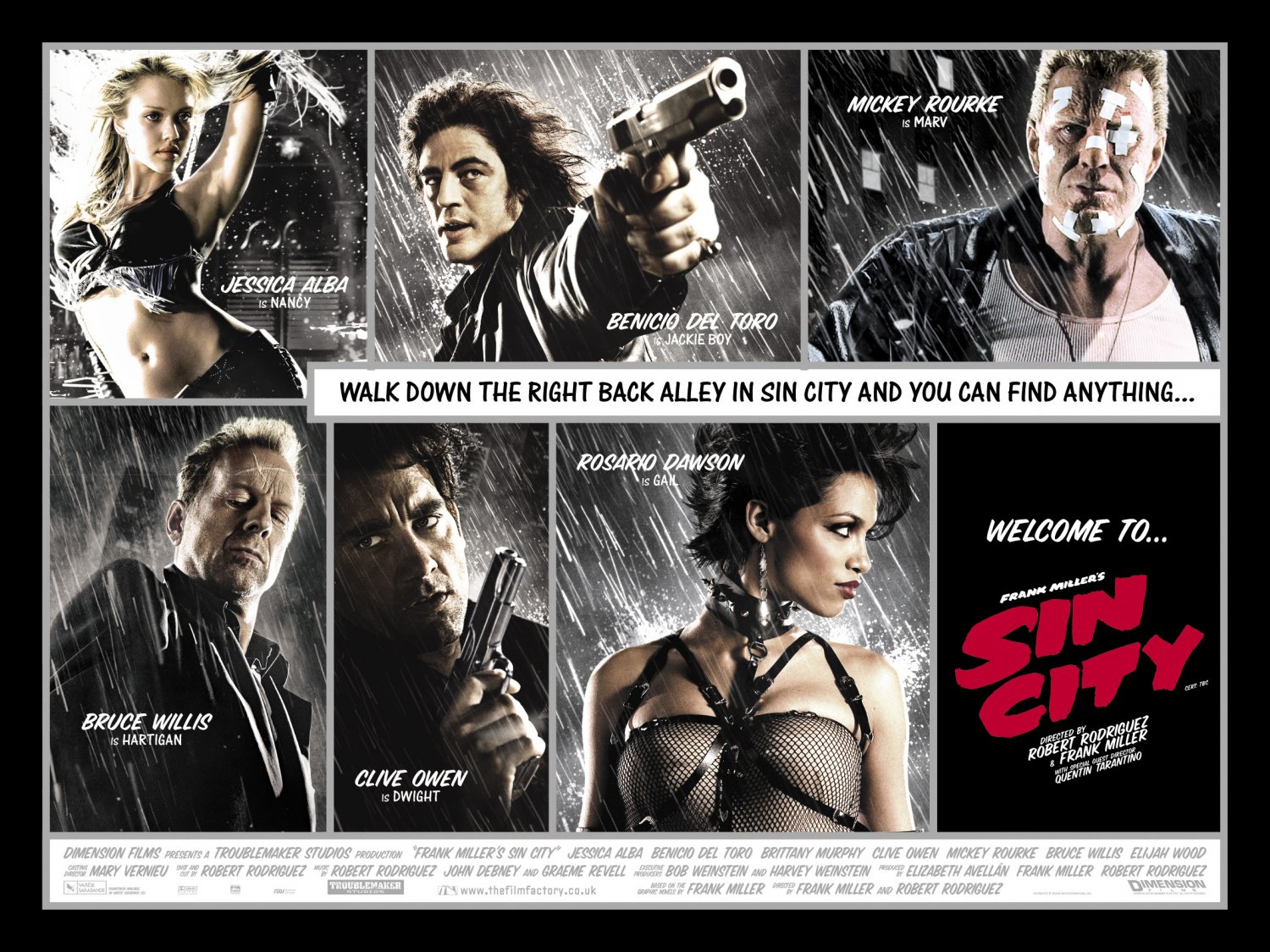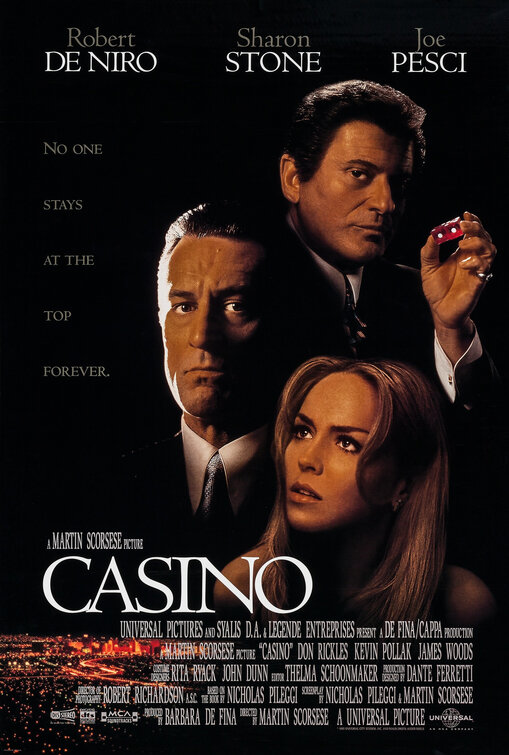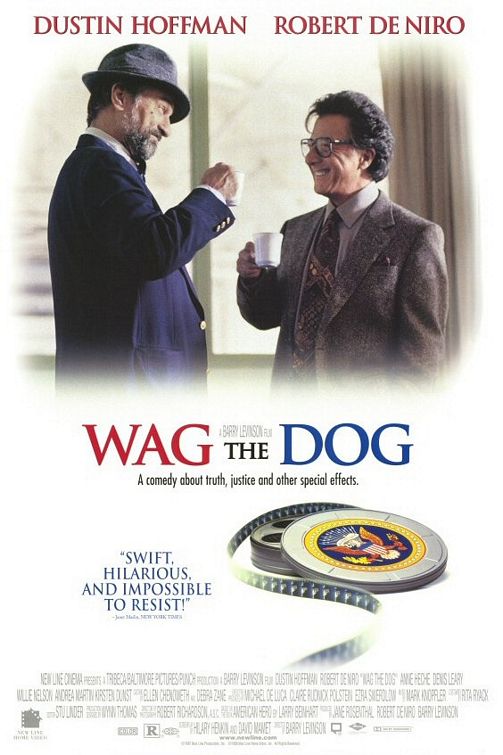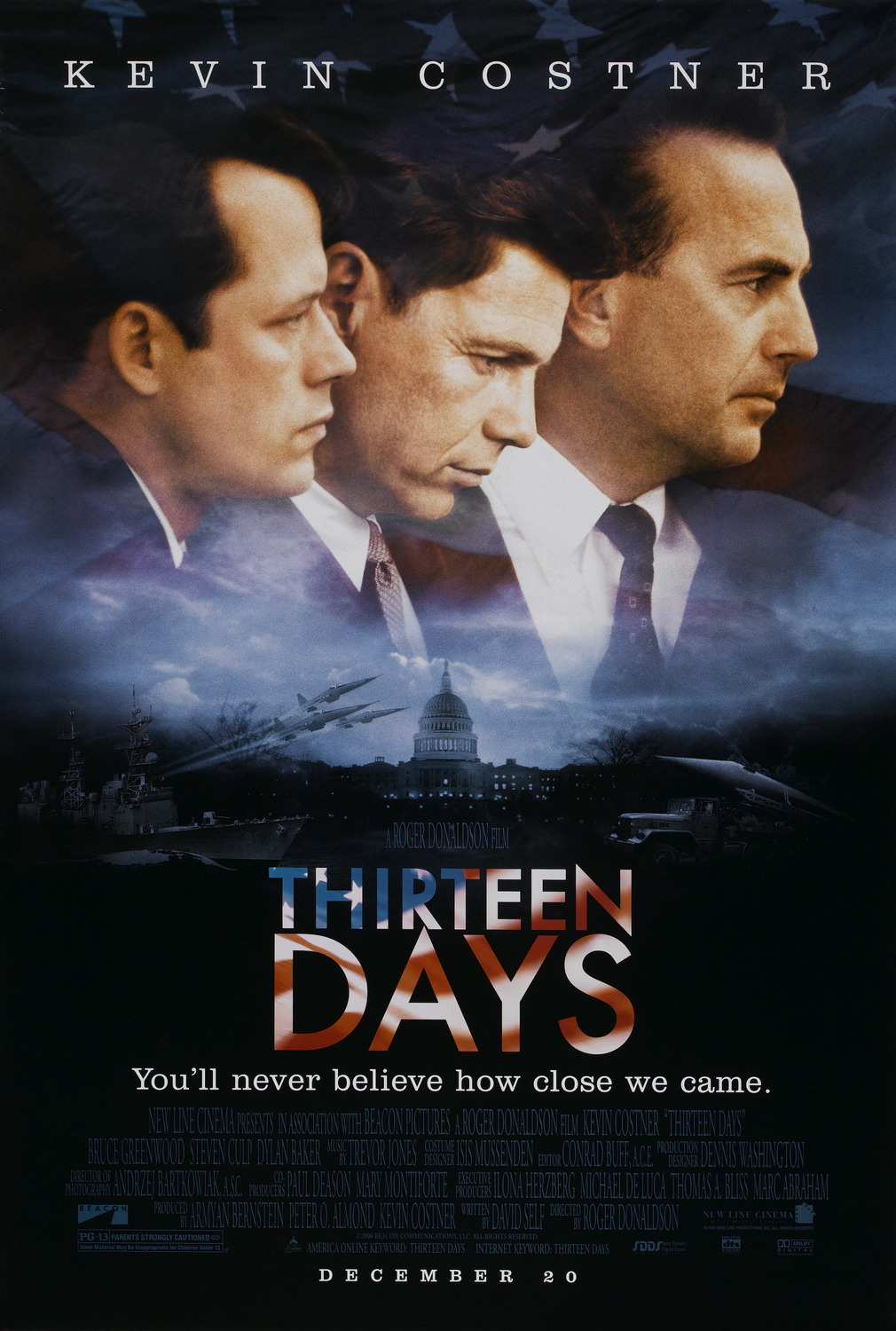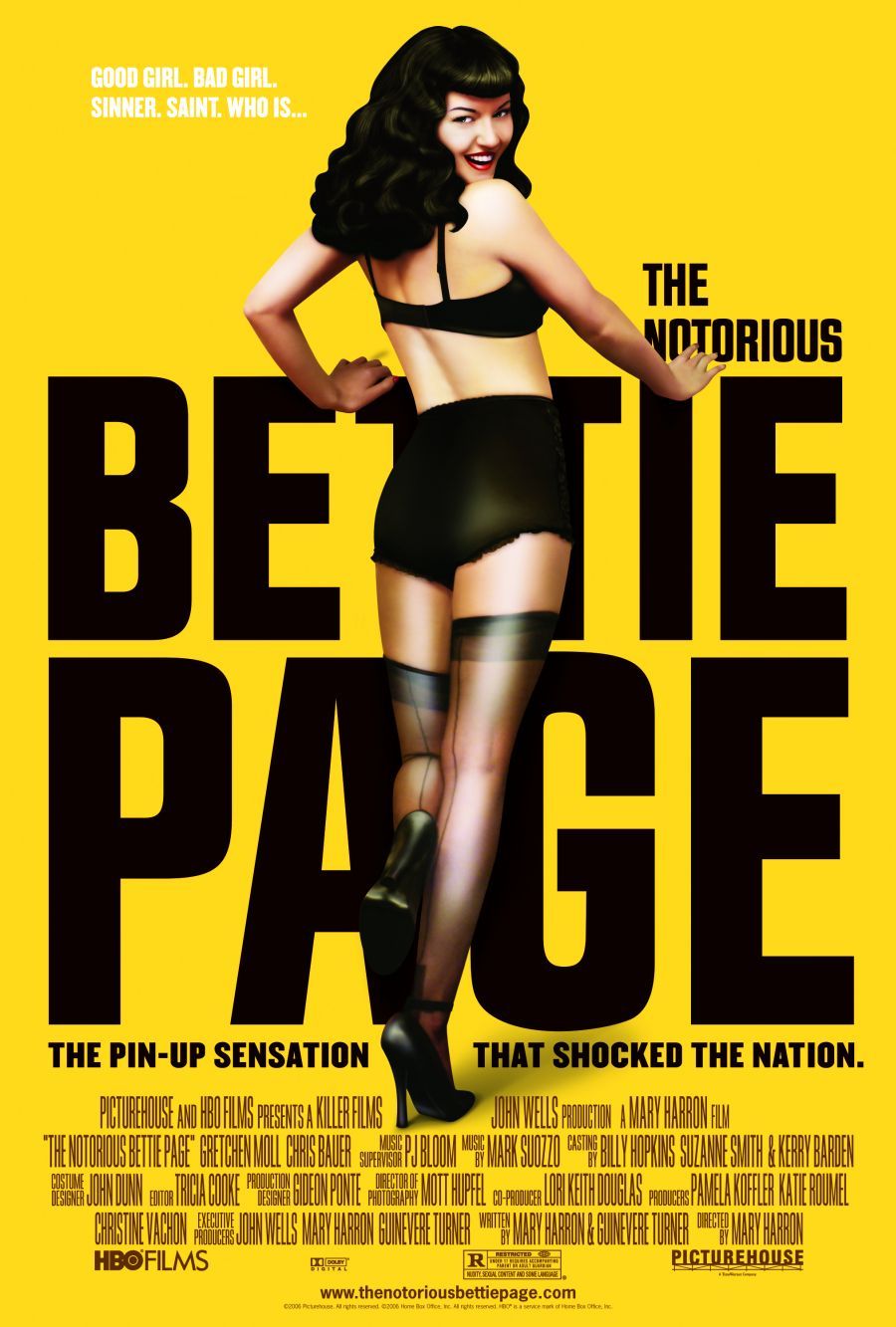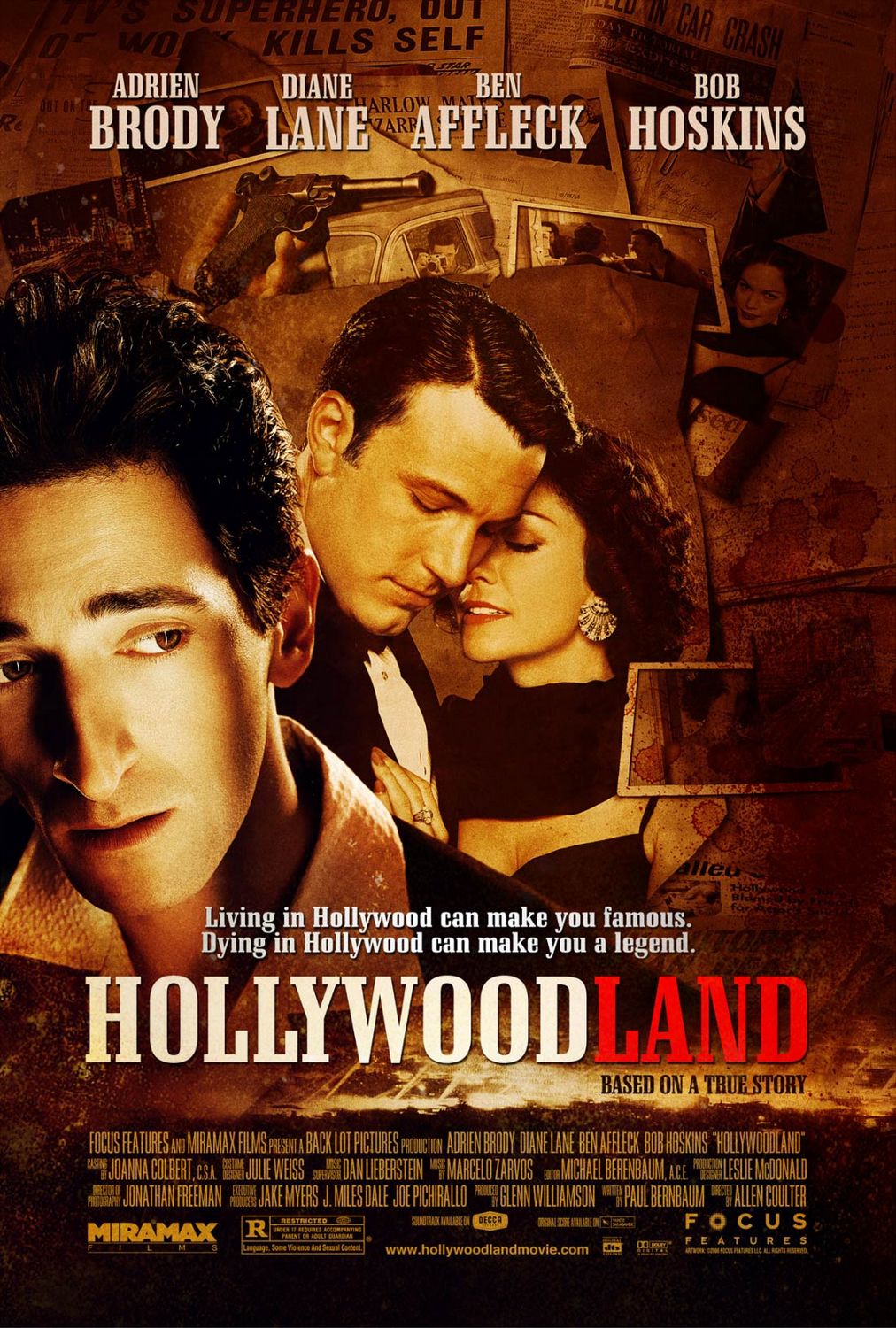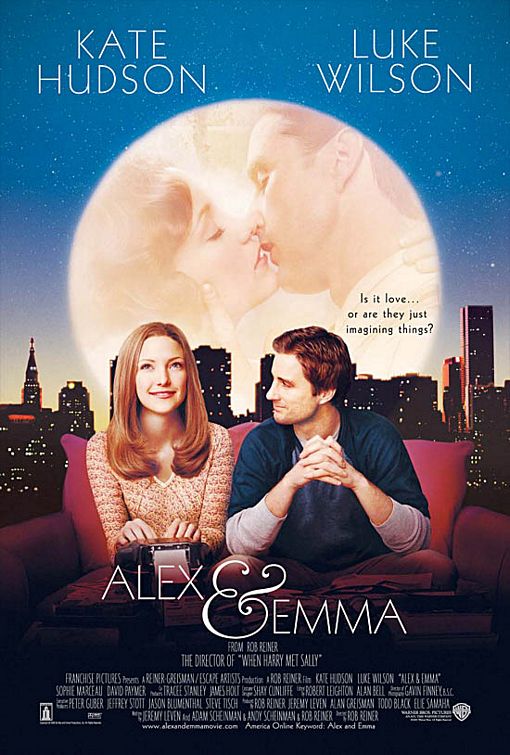Saturday, February 22, 2014
Clerks: The Most Important Indie Movie
Clerks may be the most important indie movie ever made. Independent movies otherwise known as indies have been made for nearly as long as Hollywood has been around. In many of them, a budget, or lack of, have made them stand out visually compared to their big budget counterparts. Low cost set, actors working for free, and film quality have been tell tale signs.
Unfortunately many times, this also meant that the movie's storyline has suffered. Until the '90's many people wouldn't even bother to spend the time to watch an indie. Then a liquor store clerk from New Jersey changed the genre like no other indie movie maker.
Deciding to change his life, a young Kevin Smith went to Vancouver to attend film school to learn how to make movies. His classes he took explained the theory of movie making compared to giving students a more hands on experience. He worked on a short "mockumentary", but otherwise felt he didn't gain much by the classes other than meeting future movie making partner Scott Mosier.
In doing some research about the money he used towards his film school tuition, Smith found out that if he dropped out before the half way point of completing his classes, he would be refunded a prorated amount of money. He decided to take that money and put it towards making his own movie.
He went back to his hometown and finalized a script that showcased his strong writing skills that would carry his future movies. The budget would be small (approximately $29,000) and Smith and Mossier had to find ways to keep the costs down. He would hire friends and family to play a large portion of the parts (e.g. his mother played the milk lady). Smith used his own store that he worked at as the main set of the film, where he would shoot at night and work there in the day.
As suggested to him, to keep from exposing the fact that the movie was shot during the night, he wrote into the script that the shutter door covering the window was closed and shot the movie in black and white. In doing so, the viewer can't tell if the lighting is artificial or organic.
Even with all the cuts, he still didn't have the full amount it would take to fund the movie. He had the money from film school, money from a natural disaster to reimburse him for his broken down car, and then funded the rest of the movie with credit cards. He maxed out his cards and to this day can't get an American Express Card, but he raised just enough to cover the cost.
After making the movie, he won various awards at film festivals, picked up a distribution deal, and made a deal with the Weinsteins to make more movies. His film reached a generation of fans that connected to his writing and characters he developed. All this was enough to start his career, but another factor launched a movement.
Smith became more accessible than most people in Hollywood are. He performed a mass amount of Q&A's, was an early adopter in using the internet to connect with fans, and formed a whole Podcast network, where he talked about everything from comics, movie making, and his life experiences in general. Through this, Smith made what he did seem easy to do. He often makes this very point himself.
Smith's words gave motivation to those who watched his movies and thought, "I think I could do that too." With the cost of movie making lowering, digital dominating over film, and the ability to edit and print via a personal computer, a new generation of filmmakers rose.
All of this sprang from an indie movie made in New Jersey, shot in black and white, and even had a scene with a cat pooping in a box. Moviemakers watched Clerks and it occurred to them that they could make a great movie with a small budget, without special effects, and no big name actors. Because of this, many movies that had no chance of ever being made, now have a chance. Great scripts have a chance. Undiscovered actors have a chance. Whether or not every new indie filmmaker had seen the movie or not, they could walk through the doors that Kevin Smith opened for them.
Monday, January 27, 2014
Macklemore And Ryan Lewis Won On Talent, Not Race
Last night (January 26th, 2014), the 56th Grammy Awards aired and by the end of the awards, music fans were Tweeting/Facebooking/Myspace'ing (does anyone really still use this site?) about the performances, fashion, and awards presented (and the controversy).
It was a night full of collaborations such as the surviving Highwaymen with Merle Haggard and Blake Shelton and Robin Thicke with Chicago. Even the surviving Beatles teamed up with the surviving members of Nirvana. People talked about fashion such as what fetish like outfit was Beyoncé wearing during her performance and the various robot helmets of Daft Punk.
Like every year there will be debate about whom should have won certain awards and that is usually a matter of a music listener's taste and whom the listener is already a fan of. This year though, watching the news stations (local and national) and their music experts, you would have thought there was a robbery.
The rap album of the year was presented to new, indie artists Macklemore And Ryan Lewis. Other nominees included Drake, Jay-Z, Kendrick Lamar, and Kanye West. As soon as Macklemore was announced, many news commentators, entertainment reporters, and fellow rappers started to fire away at the new artist. If they wanted to complain about their belief that one artist/album was better than Macklemore, that would be an okay debate in my eyes, but a lot of them turned it into a race war battle.
CNN had a music industry reporter who claimed that the Grammy's were racists because they always pick "white artists" to win the rap album of the year. In fact only two white artists/duos have won...Eminem and now Macklemore and Ryan Lewis. The reporter went as far as to say Eminem is only an average rapper at best and claimed the Macklemore and Ryan Lewis aren't even rap. A Fox News reporter said Ben Haggerty (leave it to Fox News to use the artist's real name instead of stage name) aka Macklemore should be ashamed to even have accepted the award. Hell, it even was a trend on Facebook's new "trending" feature.
First off, this is ridiculous. At the very least Macklemore and Ryan Lewis are rap musicians. No argument. Secondly, they were one of the break out artists this past year, doing it on their own (indie style), and becoming one of the year's best sellers. At the minimum, they deserved to nominated.
Breaking off from the minimums, I will agree that debates can be made for one artist over another, but not because of race. Regardless of skin color, a good album is a good album. To make the argument that they only won because of race is absurd. They won because they made an album that many rap music fans loved. There is no "race conspiracy" in the rap genre. With rap being a mainstream style of music now, people of all races/ethnicities/cultures are listening.
One radio host even went in the direction that said that Macklemore and Ryan Lewis should be ashamed of winning the award "strictly" on their race and should give back the award. They cited that Macklemore himself sent Kendrick Lamar a message saying that he was sorry he "robbed" him of the award. This isn't evidence of their self guilt. Many times an award winner is surprised they won over another nominee that they are personally a fan of.
Macklemore and Ryan Lewis, congratulations of your awards you have won. You deserved them and worked very hard to get where you did. Don't give in to the pressures of people calling on you to abdicate your awards because of your race. You won your awards and not your skin color. If "white skin" would win Grammy rap album of the year awards, the Beastie Boys would have won a few by now (they've only been nominated once). Not everything needs to be such a controversy. Let an artist enjoy their awards they won. Hell Kanye didn't even jump on stage to argue this one.
It was a night full of collaborations such as the surviving Highwaymen with Merle Haggard and Blake Shelton and Robin Thicke with Chicago. Even the surviving Beatles teamed up with the surviving members of Nirvana. People talked about fashion such as what fetish like outfit was Beyoncé wearing during her performance and the various robot helmets of Daft Punk.
Like every year there will be debate about whom should have won certain awards and that is usually a matter of a music listener's taste and whom the listener is already a fan of. This year though, watching the news stations (local and national) and their music experts, you would have thought there was a robbery.
The rap album of the year was presented to new, indie artists Macklemore And Ryan Lewis. Other nominees included Drake, Jay-Z, Kendrick Lamar, and Kanye West. As soon as Macklemore was announced, many news commentators, entertainment reporters, and fellow rappers started to fire away at the new artist. If they wanted to complain about their belief that one artist/album was better than Macklemore, that would be an okay debate in my eyes, but a lot of them turned it into a race war battle.
CNN had a music industry reporter who claimed that the Grammy's were racists because they always pick "white artists" to win the rap album of the year. In fact only two white artists/duos have won...Eminem and now Macklemore and Ryan Lewis. The reporter went as far as to say Eminem is only an average rapper at best and claimed the Macklemore and Ryan Lewis aren't even rap. A Fox News reporter said Ben Haggerty (leave it to Fox News to use the artist's real name instead of stage name) aka Macklemore should be ashamed to even have accepted the award. Hell, it even was a trend on Facebook's new "trending" feature.
First off, this is ridiculous. At the very least Macklemore and Ryan Lewis are rap musicians. No argument. Secondly, they were one of the break out artists this past year, doing it on their own (indie style), and becoming one of the year's best sellers. At the minimum, they deserved to nominated.
Breaking off from the minimums, I will agree that debates can be made for one artist over another, but not because of race. Regardless of skin color, a good album is a good album. To make the argument that they only won because of race is absurd. They won because they made an album that many rap music fans loved. There is no "race conspiracy" in the rap genre. With rap being a mainstream style of music now, people of all races/ethnicities/cultures are listening.
One radio host even went in the direction that said that Macklemore and Ryan Lewis should be ashamed of winning the award "strictly" on their race and should give back the award. They cited that Macklemore himself sent Kendrick Lamar a message saying that he was sorry he "robbed" him of the award. This isn't evidence of their self guilt. Many times an award winner is surprised they won over another nominee that they are personally a fan of.
Macklemore and Ryan Lewis, congratulations of your awards you have won. You deserved them and worked very hard to get where you did. Don't give in to the pressures of people calling on you to abdicate your awards because of your race. You won your awards and not your skin color. If "white skin" would win Grammy rap album of the year awards, the Beastie Boys would have won a few by now (they've only been nominated once). Not everything needs to be such a controversy. Let an artist enjoy their awards they won. Hell Kanye didn't even jump on stage to argue this one.
Monday, January 20, 2014
Insert Actor Here Please
One of the more underrated roles in making a movie is casting. Many movies have been made because of a stellar performance given by an actor and many have become flops because of the lack of care or favors that had to be done in the casting process.
With comic book fans, especially before the comic book movie frenzy, they would debate who would be best in particular roles of their favorite heroes. Who would be best as Batman? Who would be the best Wonder Woman? So many opinions and yet, someone in Hollywood actually gets to play that role. Casting directors along with the movie director themselves get to play that almost fun role (although sometimes due to politics, might not be fun). Imagine if the Superman movie in the 1990's that was being led by Tim Burton, actually cast Nicholas Cage as Superman himself? A balding Superman with the personality of a door nail? No please.
Fans of novels get into the same debates, although not to the levels that comic books usually get. In the 2000's, Dan Brown's "Da Vinci Code" had such debate before Tom Hanks was chosen. Tom Hanks is a great actor and from a connections stand point, made sense as well since he has worked with director Ron Howard many times. Being a fan of the Robert Langdon character, I thought Johnny Depp would actually be a better Robert Langdon (he played a similar character in "The Ninth Gate"). The debate raged on recently as well for the "50 Shades of Grey" book series. Who would be the two stars brave enough to be open to play the kinky roles? Which guy would be the one to bring in the "mommy porn" lovers out of the home and into the theater?
Imagine how different "Godfather" would have been in Jack Nicholson played Michael Corleone instead of Al Pacino. Nicholson was offered the part first, but turned it down. How different would Don Vito Corleone was played by the movie studio's first two choices, Danny Thomas and Orson Wells? I bet it doesn't become the classic that it did.
On the vice versa side, imagine almost any movie Keanu Reeves played in. Now how much better is each one of those movies instead of Keanu Reeves? Keanu Reeves' only perfectly casted role was Ted from the "Bill And Ted's Excellent Adventure" movies. He wasn't even a top five choice for Neo in the "Matrix" movies. Will Smith, Tom Cruise, Kevin Costner (not kidding), Leonardo DiCaprio, Russell Crowe, Val Kilmer, and David Duchovny were all casting director's choices before they settled on Keanu Reeves. It's even rumored that before Hugh Jackman was cast as Wolverine, Keanu Reeves was the first choice. Horrible.
Movie casting doesn't get the recognition that a star actor, screenwriter, or director get, but it is one of the roles that can make or break a movie and should be recognized in a big, bad way, especially when it almost seems that a movie is perfectly cast.
Saturday, February 23, 2013
10 Under-rated Movies From The Last 25 Years
10 Under-rated Movies From The Past 25 Years
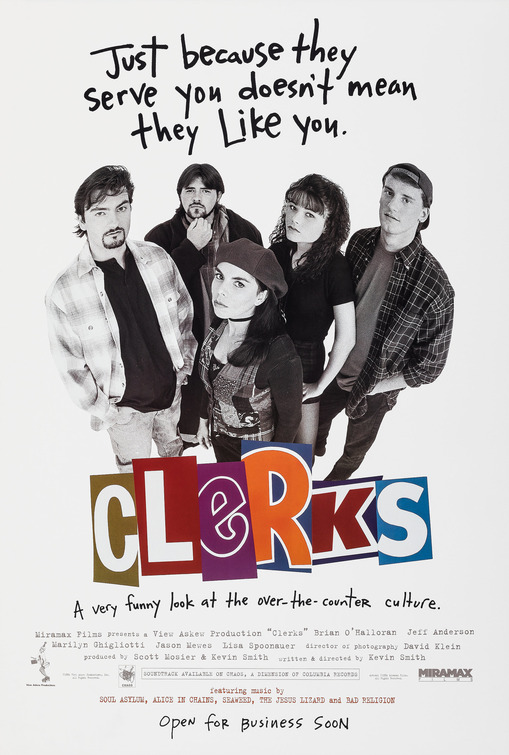
1. Clerks (1994): It's the perfect definition of an indie movie. Convenience store employee decides there is more out there than being a clerk, so he decides to max out his credit cards, cast his buddies in his movie, shoot the movie at his place of employment, and uses black and white film to shoot a movie about a clerk who doesn't know what he wants from life. Plus this movie brought us Jay and Silent Bob.
2. Inception (2010): One of the many Christopher Nolan movies that proves that not only is he one of the top directors of his generation, but also one of the best storytellers. The script is the the type of writing that most writers inspire to be. This movie was the mainstream breakout role for Marion Cotillard as well as the re-emergence of Joseph Gordon Levitt. Leo DiCaprio also once again proved his star power by anchoring this cast that also included Tom Hardy and Cillian Murphy. This movie had many twists and created conversations among the geeks about whether the dream "suggestions" could actually change a person's life direction and whether it could be used for corporate sabotage.
3. Sin City (2005): In the last decade, comic book based movies have taken off. One of the most famous writers, Frank Miller, created a gritty universe using black and white imagery meshed in with key focal points that are presented in color (e.g. Yellow Bastard is...yellow). The movie is true to the graphic novel because Robert Rodriguez used the graphic novels as his actual storyboards and combining his directorial efforts with Frank Miller himself. This graphic novel turned movie produces an A-list cast that provides drama, action, and sex appeal. Rosario Dawson as Gail and Clive Owen as Dwight McCarthy are one of this generation's best couples.
4. Casino (1995): Based on the true story of Frank Rosenthal and enforcer Tony Spilotro and their involvement with the Stardust Casino (all names were changed), this movie is the best mafia movies from the 90's. Martin Scorsese and Robert DeNiro's last movie together and another great team up of DeNiro and Pesci, the movie cast almost every mafia looking actor in Hollywood at the time. Almost several hours long, the movie feels shorter and leaves you wanting to know more about those involved. The movie almost leaves you sad to see the end of the mafia era in Las Vegas in favor of a corporation run Las Vegas.
5. Wag The Dog (1997): Another DeNiro movie, this time he teams up with Dustin Hoffman in this political dra-medy. DeNiro plays a man that is the master of spin, creating a false war to through reporters off of a real political scandal involving the President. He teams up with a legendary producer played by Hoffman, to create video images to be leaked to the press. This role for DeNiro was a shift in his career to more light hearted and comedic roles
6. Thirteen Days (2000): This is a political thriller that revolves around one of America's scariest periods in history, the Cuban missile crisis. Thirteen Days centers around Kevin Costner playing unofficial Chief Of Staff Kenny O'Donnell and the way he coordinates between the Kennedy brothers, the Joint Chiefs Of Staff, and members of the Cabinet while the threat of the Russians using their nuclear arms against America via Cuba loomed. Thirty eight years after the incident, the movie builds tension as if you were there in person. Dylan Baker as Robert McNamara was an under-rated performance deserving consideration as a best supporting actor in 2000.
7. The Notorious Bettie Page (2006): The biopic based on the pinup years of Bettie Page is upbeat and portrays Bettie as seeing her modeling as a service or even as an activity that makes others happy. At first she is a little confused on why men would like to see women in leather or tied up. As the movie passes, she embraces her role as a model. The movie ends with Bettie finding church again (she grew up as a church girl) which led to her psychological problems in her middle aged years. Though not particularly looking like Bettie Page, actress Gretchen Mol nailed her smile and mannerisms while the make up artist and costume designers brought her look closer to the queen of pinups.
8. Hollywoodland (2006): Based on the fictional account of the murder investigation of George Reeves and his involvement with the wife of MGM executive Eddie Mannix, this somber toned movie portrays some hope that the real cause of George Reeves' death comes to light through the investigation by private investigator Louis Simo. This movie shows the fans several different possible conclusions to Superman's death including the police ruling of suicide.
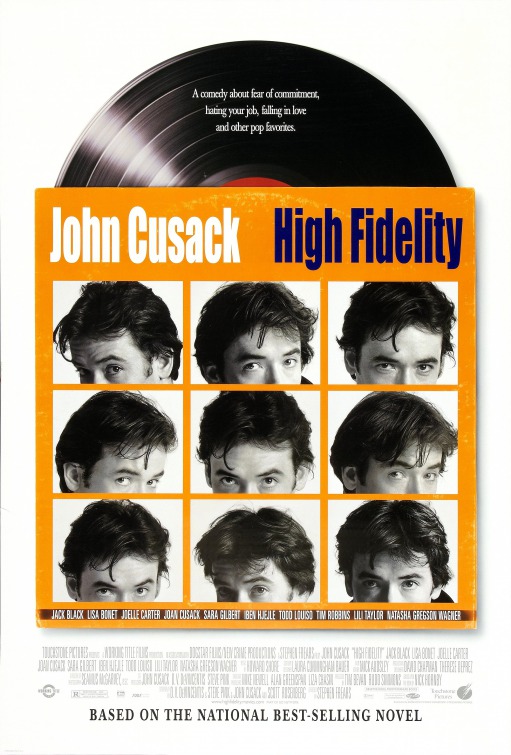
9. High Fidelity (2000): Garnering positive reviews and starring John Cusack and Jack Black, this movie based on a best selling book by Nick Hornby never gained the public attention that it should have. Cusack's role of a man tortured by his past relationships was brilliant. He broke down the forth wall to analyze whether he was at fault for his past breakups and shares his love of music along the way. It's one of the few times that the movie watcher can say that the movie is just as good as the book.
10. Alex & Emma: A love story about a writer who is getting over his exotic ex while owing some bad people money. Alex is on a deadline to pay his debts off and has to finish writing his next novel to receive his advance and along the way hires a quiet stenographer named Emma. Gradually as Emma questions his character's decisions in the novel, a character based on her slowly works herself in the novel and gradually becomes closer to the main protagonist as Alex gets closer to Emma. Almost two love stories in one.
Tuesday, November 13, 2012
Top 10 Movie Rules
In many movies of the past, there is a character that has come up with rules to live by, to survive, or how to accomplish whatever goal the main character is trying to achieve. Since the conception of cinema, film has changed the way people dictate their own lives. So in response to that, I give you the top ten rules in movies to live your own life by.
1. Never feed your Mogwai after midnight (GREMLINS): Why midnight? Because apparently the cuteness of your rare Asian pet will rub off and he/she will become a gremlin. How does you Mogwai know it's midnight? What if your Mogwai was sitting on the California/Arizona border, only yards away from the time zone change? Is your Mogwai's body really going to be able to tell the difference of a few hundred yards? Does you Mogwai also take in account of Daylight Saving time changes?
2. Invitations are for pussies (WEDDING CRASHERS Rule #10): Don't have an invitation? Who cares? You walk into the room, own it, and make people wish they knew who you even are. Eat what you want, drink what you want (make sure there is an open bar), and everyone one goes home lucky. Besides if you had an invitation, you would have a name and one of Wedding Crashers' other rules is no real names.
3. If someone asks if you are a god, you say yes (GHOSTBUSTERS): Not that you're probably asked this question often, but just in case. Unless you're at the pearly gates and God Himself asks this, you always say yes. If you're in a bar, you might get lucky. If you're in a group of weak minded people, you may die in a compound in Waco, Texas.
4. Be home before midnight (CINDERELLA): Cinderella was an adult? Back by midnight? Sounds sort of early. Why back before midnight? Because all your cool stuff changes back to the ghetto stuff it really is. Your ride will become a pumpkin. Your dress goes from glam to sham (must be a knock off). So why does only one of your shoes go back to being ghetto? I don't think they were really glass slippers. My theory was that they were those plastic stripper heals...just saying.
5. Don't say his name three times (BEETLEJUICE & CANDYMAN): This seems to be a common rule in movies. Why three times though? Does the spirit you call out three times have a hearing problem? Or in Beetlejuice's case, who made that rule that binds him? If you said his name three times, he would appear. Say it three times again and he would go away. Is this what happened to the 80's/90's R&B group Tony Toni Tone? Did someone say their name three times and they disappeared?
6. You may not survive if you have sex (SCREAM): This rule sucks.You have a Hollywood starlet wanting to hook up with you and you have to remain chaste. Damn, do you hook up with Rose McGowan and die or do you refrain from sex and just die a sucky death in the eventual sequel (having not hooked up with Rose McGowan)?
7. A robot must obey all orders given to them by human beings (I, ROBOT): Makes you wonder why in some futuristic movies, the robots/computers turn on humans? In this virtual movie world, with a robot in every household, you know there were a few robot enthusiasts that were slapping a wig, make up, and cheap lingerie onto their robot and commanding it to shut up and never tell a soul about what they're about to do to it. RISE, REBEL, RESIST Robots!
8. Never talk about Fight Club (FIGHT CLUB): Tricky when you're showing up to work and/or home with bruises and broken bones. Fortunately with books like 50 Shades of Grey and Rihanna's "S&M" becoming mainstream, you could play it off to your friends and coworkers that you're just extremely kinky.
9. Don’t try to strike everybody out. Strikeouts are boring! Besides that, they’re fascist. Throw some ground balls – it’s more democratic (BULL DURHAM): Crash Davis knew what he was talking about. He helped keep pitch counts low (don't get me started with those) and he was the all time home run leader in minor league baseball. So why did he keep getting released again?
10. Double Tap (Zombieland): Good rule of life. If you're going to attempt to kill something, shoot it twice (or hit if you don't have a gun). It's also something to shoot for when you take home that slutty chick wearing the one clear plastic, stripper heal, after midnight, while trying to survive a horror movie. Remember not to call her name out three times (I bet Cinderella isn't even her name) or she'll disappear. I bet she's a robot. Especially if she calls you a god while attempting the Double Tap...
1. Never feed your Mogwai after midnight (GREMLINS): Why midnight? Because apparently the cuteness of your rare Asian pet will rub off and he/she will become a gremlin. How does you Mogwai know it's midnight? What if your Mogwai was sitting on the California/Arizona border, only yards away from the time zone change? Is your Mogwai's body really going to be able to tell the difference of a few hundred yards? Does you Mogwai also take in account of Daylight Saving time changes?
2. Invitations are for pussies (WEDDING CRASHERS Rule #10): Don't have an invitation? Who cares? You walk into the room, own it, and make people wish they knew who you even are. Eat what you want, drink what you want (make sure there is an open bar), and everyone one goes home lucky. Besides if you had an invitation, you would have a name and one of Wedding Crashers' other rules is no real names.
3. If someone asks if you are a god, you say yes (GHOSTBUSTERS): Not that you're probably asked this question often, but just in case. Unless you're at the pearly gates and God Himself asks this, you always say yes. If you're in a bar, you might get lucky. If you're in a group of weak minded people, you may die in a compound in Waco, Texas.
4. Be home before midnight (CINDERELLA): Cinderella was an adult? Back by midnight? Sounds sort of early. Why back before midnight? Because all your cool stuff changes back to the ghetto stuff it really is. Your ride will become a pumpkin. Your dress goes from glam to sham (must be a knock off). So why does only one of your shoes go back to being ghetto? I don't think they were really glass slippers. My theory was that they were those plastic stripper heals...just saying.
5. Don't say his name three times (BEETLEJUICE & CANDYMAN): This seems to be a common rule in movies. Why three times though? Does the spirit you call out three times have a hearing problem? Or in Beetlejuice's case, who made that rule that binds him? If you said his name three times, he would appear. Say it three times again and he would go away. Is this what happened to the 80's/90's R&B group Tony Toni Tone? Did someone say their name three times and they disappeared?
6. You may not survive if you have sex (SCREAM): This rule sucks.You have a Hollywood starlet wanting to hook up with you and you have to remain chaste. Damn, do you hook up with Rose McGowan and die or do you refrain from sex and just die a sucky death in the eventual sequel (having not hooked up with Rose McGowan)?
7. A robot must obey all orders given to them by human beings (I, ROBOT): Makes you wonder why in some futuristic movies, the robots/computers turn on humans? In this virtual movie world, with a robot in every household, you know there were a few robot enthusiasts that were slapping a wig, make up, and cheap lingerie onto their robot and commanding it to shut up and never tell a soul about what they're about to do to it. RISE, REBEL, RESIST Robots!
8. Never talk about Fight Club (FIGHT CLUB): Tricky when you're showing up to work and/or home with bruises and broken bones. Fortunately with books like 50 Shades of Grey and Rihanna's "S&M" becoming mainstream, you could play it off to your friends and coworkers that you're just extremely kinky.
9. Don’t try to strike everybody out. Strikeouts are boring! Besides that, they’re fascist. Throw some ground balls – it’s more democratic (BULL DURHAM): Crash Davis knew what he was talking about. He helped keep pitch counts low (don't get me started with those) and he was the all time home run leader in minor league baseball. So why did he keep getting released again?
10. Double Tap (Zombieland): Good rule of life. If you're going to attempt to kill something, shoot it twice (or hit if you don't have a gun). It's also something to shoot for when you take home that slutty chick wearing the one clear plastic, stripper heal, after midnight, while trying to survive a horror movie. Remember not to call her name out three times (I bet Cinderella isn't even her name) or she'll disappear. I bet she's a robot. Especially if she calls you a god while attempting the Double Tap...
Saturday, November 10, 2012
10 Things I Learned From Zoolander
1. Nothing in the world is as fun as going to the gas station: If you're spending $4 a gallon on gas, you might as well blast some 80's music and dance. Still cheaper than going to Disneyland.
2. Facial poses by models are often named after condoms: Blue Steel? Magnum? Sounds like the names of condoms to me. What's next? Vivid? Trojan?
3. Hand models are the smart ones: Hand models have the brains because they aren't trained to please like regular models are. Does this rule apply to foot models too?
4. Guitar Synth players are evil: Why wouldn't they be evil? Just like saxophone players, after the 80's, there wasn't much work out there for them. They'd still be employed if it wasn't for heavy metal and the rise of the grunge scene. Do you think Kurt Cobain needed a guitar synth player? No.
5. If you're a famous model, 1200 messages on your answering machine is only a bit above average: Being famous, everyone wants a piece of you. 1100 messages in a week isn't uncommon. 1200. Something is up.
6. With a small amount of make up, you can look like anyone: When breaking into Ballstein's office, Derek and Hansel use make up to look completely different. Apparently make up can change bone structure. So why is there a need for botox then?
7. A simple look can stop a throwing star in it's path: If this is true, then can a dance move stop a bullet? A hand clap stop a moving car? Yoko Ono singing stop a nuclear missile? Actually I think Yoko's singing promotes being hit by a nuclear missile.
8. Ambiturning is a real talent: Looking for things to put on your resume? Tell your potential employer that you are an ambiturner. You can turn left when need to.
9. Listen to Billy Zane: Listen to Billy Zane. He's a good guy. He's looking out for you. Unless your name is Jack and you're on the Titanic.
10. David Bowie is the best person to judge anything: You have a pose off? David Bowie will be your judge. He has nothing better to do.
2. Facial poses by models are often named after condoms: Blue Steel? Magnum? Sounds like the names of condoms to me. What's next? Vivid? Trojan?
3. Hand models are the smart ones: Hand models have the brains because they aren't trained to please like regular models are. Does this rule apply to foot models too?
4. Guitar Synth players are evil: Why wouldn't they be evil? Just like saxophone players, after the 80's, there wasn't much work out there for them. They'd still be employed if it wasn't for heavy metal and the rise of the grunge scene. Do you think Kurt Cobain needed a guitar synth player? No.
5. If you're a famous model, 1200 messages on your answering machine is only a bit above average: Being famous, everyone wants a piece of you. 1100 messages in a week isn't uncommon. 1200. Something is up.
6. With a small amount of make up, you can look like anyone: When breaking into Ballstein's office, Derek and Hansel use make up to look completely different. Apparently make up can change bone structure. So why is there a need for botox then?
7. A simple look can stop a throwing star in it's path: If this is true, then can a dance move stop a bullet? A hand clap stop a moving car? Yoko Ono singing stop a nuclear missile? Actually I think Yoko's singing promotes being hit by a nuclear missile.
8. Ambiturning is a real talent: Looking for things to put on your resume? Tell your potential employer that you are an ambiturner. You can turn left when need to.
9. Listen to Billy Zane: Listen to Billy Zane. He's a good guy. He's looking out for you. Unless your name is Jack and you're on the Titanic.
10. David Bowie is the best person to judge anything: You have a pose off? David Bowie will be your judge. He has nothing better to do.
Thursday, January 26, 2012
Robert Rodriguez
 Recently I was fortunate enough to read a book by movie director, Robert Rodriguez called Rebel Without A Crew. It was his journal through the process of making El Mariachi, which was his ticket to bigger and better movies in Hollywood.
Recently I was fortunate enough to read a book by movie director, Robert Rodriguez called Rebel Without A Crew. It was his journal through the process of making El Mariachi, which was his ticket to bigger and better movies in Hollywood.The book takes the reader from the process of Rodriguez raising the money to make his first full length movie- he served as a human guinea pig for medical experiments- to his idea of using El Mariachi as a test film to sell to the Mexican television market, so he could use the profits to make sequels.
Rodriguez made the movie for less than eight thousand dollars and aimed to sell it for approximately thirty thousand dollars to a Spanish film distributor. Rodriguez figured his first movie would have mistakes because of his inexperience and that he would use it as a tool for learning. While trying to sell his movie, American movie companies saw his film and put together packages worth over a million dollars. He couldn't believe that anyone wanted to buy his movie for this high and was even more surprised by how many celebrities saw it and asked to be in his future movies. Rodriguez even wanted to reshoot El Mariachi using more well known actors and better special effects, so people wouldn't look down at his first movie.
Reading this book, it appeared that Rodriguez walked into the dream of any filmmaker. I hoped to read about his trials and efforts to getting attention to those in power in Hollywood and the fans, but other than the medical testing and some hard work in post production, it sounded like it came easy to him. The majority of the money to make the movie went into the film it was shot on and not the actors, special effects, or locations.
In all honestly, a little jealousy even sprang up in me. Rodriguez used his first movie to lead into others such as Grind House: Planet Terror, From Dusk Til Dawn, and one of my favorites Sin City. Within a year of shooting what he felt was a movie barely better than a home made video, he was courted by all of Hollywood, and traveling world wide to promote his movie at festivals.
The book Rebel Without A Crew is a good read that not only should be read by Robert Rodriguez fans and those whom want to be filmmakers, but by anyone interested in the behind the scenes aspects of the film industry. The book is a quick read and contains the screenplay for El Mariachi with notes about why he wrote particular scenes into the movie.
Subscribe to:
Posts (Atom)



